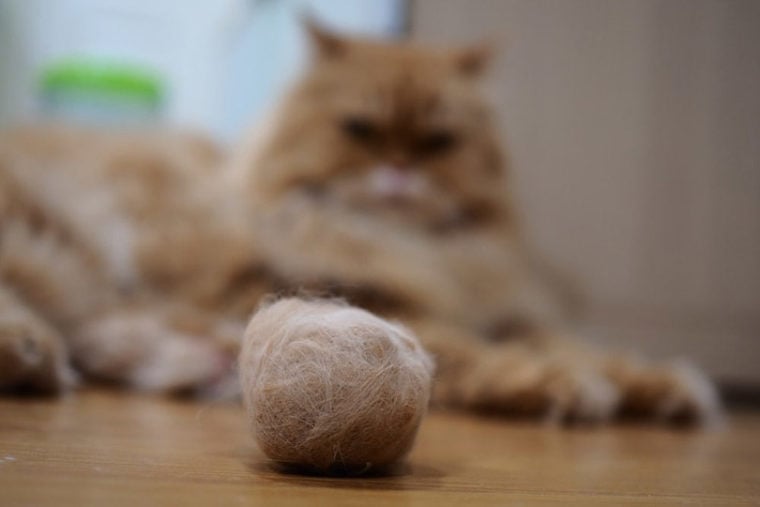
Click to Skip Ahead
Since cats groom themselves regularly, hairballs are not an uncommon occurrence. However, if hairballs are a regular issue with your cat, there is likely an underlying cause. In that instance, you should take him to the vet so his condition can be diagnosed and treated.
In the meantime, if your cat is struggling with hairballs, you can help him. Hairballs can be uncomfortable and even painful for your cat, so passing them is crucial. There are plenty of ways to help a cat pass hairballs, and we have gathered the 9 best tips for you to start with. If you are eager to help your cat through his hairball issues, keep reading for valuable advice.
Top 9 Tips on How to Help Your Cat Pass a Hairball
1. Ensure He Is Properly Hydrated
Proper hydration is an integral part of your cat’s digestion. If your cat is dehydrated, it can lead to gastrointestinal issues or abnormal bowel movements. Dehydration also may increase your cat’s chances of struggling with hairballs.
If your cat is on a strictly dry kibble diet, you may consider adding moisture-rich fresh food or wet food to his regular meals. Fresh food will provide your cat with extra moisture that may help keep him hydrated. Other than that, encourage your cat to drink more water by placing more water bowls around the house, buying him a water fountain, and changing his water regularly.
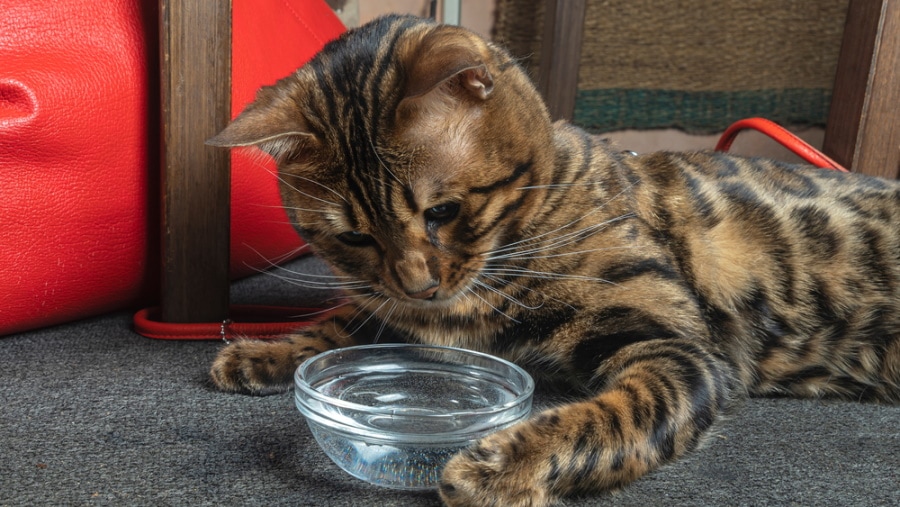
2. Provide Food That Is High in Fiber
If your cat struggles with hairballs regularly, the issue could be his diet. Specifically, his diet could be lacking in fiber. Fiber is essential to your cat’s gastrointestinal health and combats the production of hairballs.
You can find a cat food recipe that is simply higher in fiber, or you can look for one specifically crafted to manage hairball complications. Recipes catered specifically to hairball-related concerns will likely be higher in fiber.
3. Use Gastric Lubricant
Gastric lubricant may sound intimidating or clinical, but it is nothing to worry about. Gastric lubricants are hairball pastes or gels, often containing vegetable oil, that helps the hair pass easily through your cat’s system. They also may have supplements of probiotics that improve overall digestive health.
It is easy to feed this lubricant to your cat. You can put a drop of it on your cat’s paw, encouraging him to lick it off, or you can feed it to him from your fingers. You can sneak it into his meals if he is hesitant to eat it.
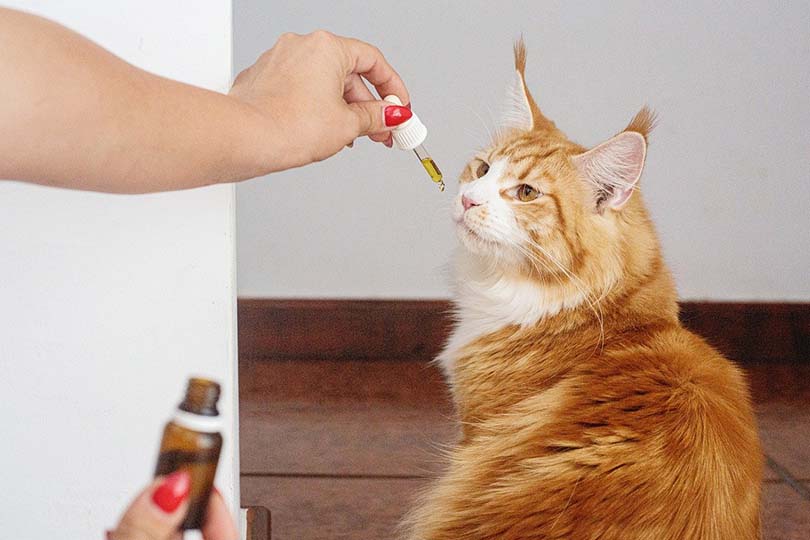
4. Serve Malty Pastes or Treats
Malty pastes, much like gastric lubricants, help move hair through the digestive system after ingestion. Malts are also suitable for easing the digestion of food as well as providing a boost of energy.
Although malt pastes can be effective, they can sometimes be challenging to administer. You can drop the paste on your cat’s paw, but offering him malty treats is the simplest way to ensure that he is eating the malt. The treats are generally more appetizing to cats than the paste.
5. Use Stool Softeners
If your cat struggles to use the bathroom due to hardened stools, he will not be able to pass hairballs. While your cat may be able to use the bathroom to excrete some waste, he will be unable to release most of it, which will contribute to the build-up of hair inside his digestive system.
You can soften his stools by using cat laxatives prescribed by your veterinarian.
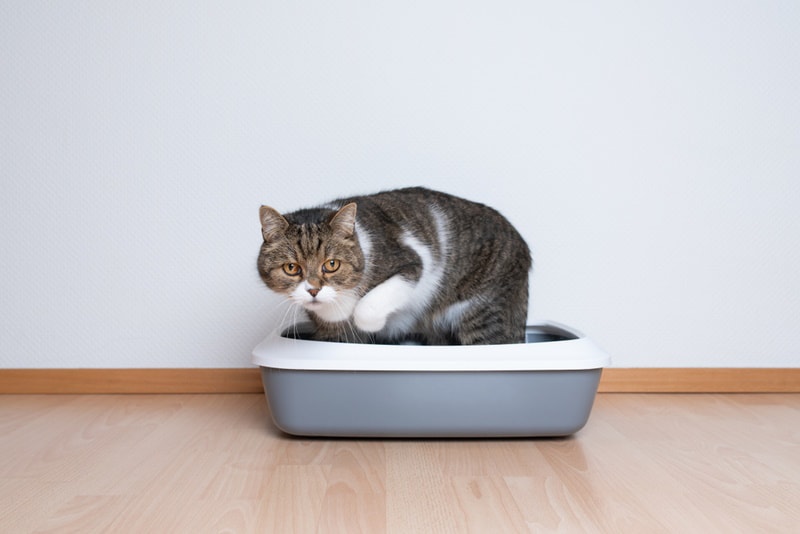
6. Exercise Consistently
Regular activity helps to promote consistent digestive flow. The more regularly your cat uses the bathroom, the less likely he is to become constipated and develop hairballs.
Constipation from inadequate exercise is more common in older cats. Since older cats are less likely to be active on their own accord, it is essential to schedule regular time to exercise your cat. Playing with your cat is a great way to promote a more active lifestyle.
7. Grow Cat Grass
Since eating grass may make your cat vomit, cats that are struggling with hairballs may be inclined to chew on grass. However, outdoor grass can be harmful for your cat. Fertilizers and pesticides that may be in the grass can be poisonous when ingested. If your cat wants to chew on grass, it is best if you grow your own grass for him.
Growing the grass inside where it cannot be contaminated with chemicals is an excellent way to provide safe grass for your pet. Once the grass has grown to an adequate length, leave it somewhere your cat can chew on it.
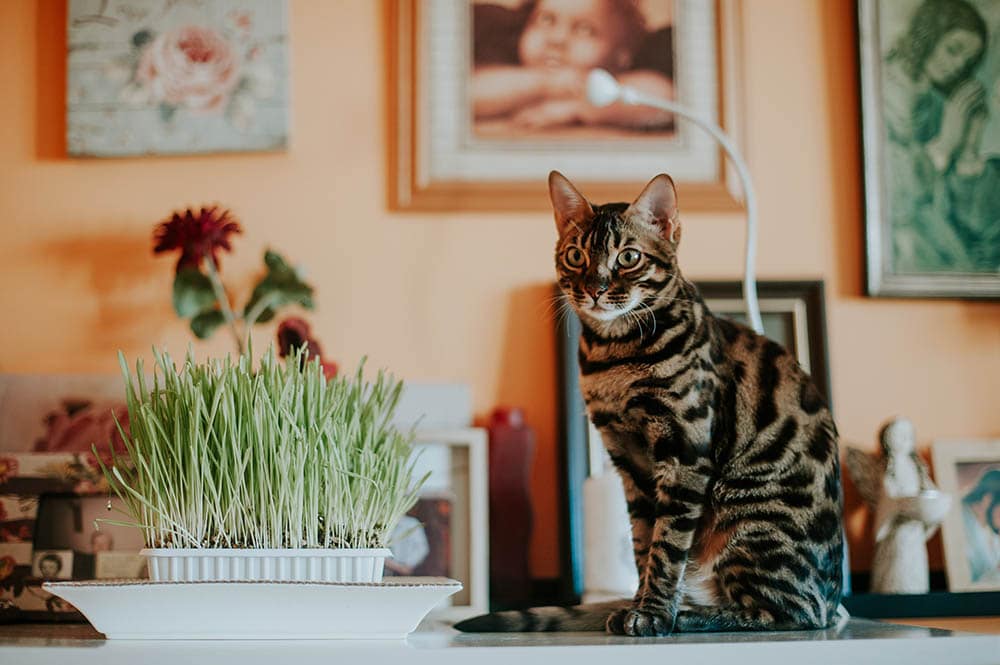
8. Use Fish Oil
Fish oil may be a good option if you want to feed your cat a hairball remedy, but he avoids the pastes and hairball-specific recipes. The oil will lubricate your cat’s digestive system, making the passing of hairballs much easier. Cats enjoy the taste of fish, and convincing him to eat a treat coated in fish oil will likely not be difficult.
9. Offer Manual Assistance
This may not be your preference, but if none of the other options provide solutions, you may need to offer your cat some manual assistance.
With warm water, wet a paper towel. Take your cat to his litter box and set him down in it. You need to gently rub the anus in circular movements. Do this for 60 seconds; it helps to stimulate your cat’s colon.
You will know you have succeeded when your cat’s anus begins to twitch. Hopefully, this will allow your cat to pass the hairball.
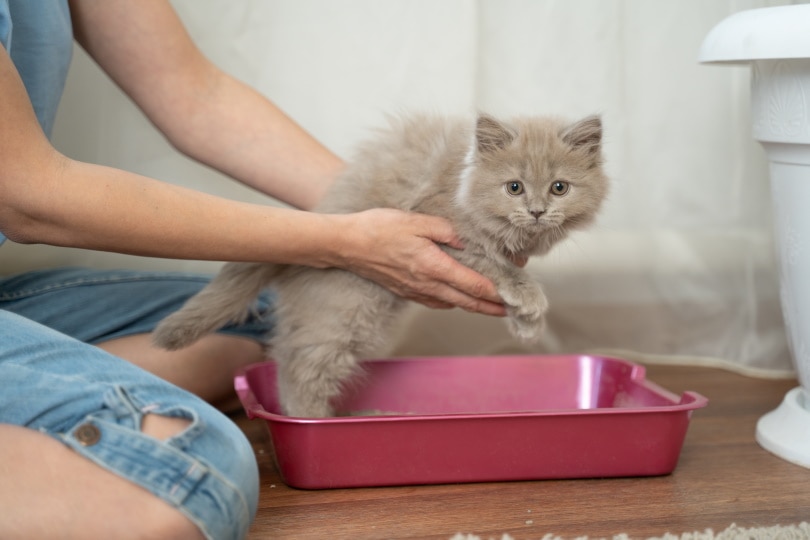
How To Prevent Hairballs
No one wants to deal with hairballs. It is a hassle for you as a cat owner and a great discomfort for your cat. The best way to minimize the presence of hairballs is to take steps to prevent them before they can build up.
Provide Regular Grooming
Scheduling in time for regular brushing is a great way to prevent hairballs from occurring. Removing the loose fur from your cat’s coat keeps him from licking it off himself, which keeps more hair out of his digestive system.
Long-haired cats should be brushed daily, whereas short-haired cats should be brushed a few times per week. During shedding seasons, the frequency of brushing should be increased.
Our favorite cat brush is Hepper Cat Brush. This brush is perfect for both you and your cat since it is easy to use, clean and it’s very effective when getting rid of loose hair and knots in your cat’s coat.
At Pet Keen, we’ve admired Hepper for many years and decided to take a controlling ownership interest so that we could benefit from the outstanding designs of this cool cat company!
Reduce Your Cat’s Stress
Minimizing your cat’s stress is vital for many reasons, and reducing hairballs is among them. Cats tend to groom themselves too much when they are under stress. When cats overgroom, they are more likely to develop hairballs. Therefore, maintaining a calm environment for your cat is a great way to prevent hairballs.
Prevent Fleas and Other Irritants
If your cat is dealing with fleas, ticks, or other skin irritants, he will likely try to lick himself to try and find relief. The extra licking will lead to extra hair in the digestive system, which leads to more hairballs.
If your cat is struggling with some skin irritant, treating the issue is the best way to reduce the number of hairballs.
Conclusion
We all want what is best for our cats, which means we hate to see them in discomfort. When your cat has hairball problems, it can be easy to feel like there is nothing you can do. Thankfully, there are many options available to you to help your cat. If your cat is experiencing frequent hairball issues, take him to the vet to see if there is an underlying issue.
See also:
Featured Image Credit: Montakan Wannasri, Shutterstock








